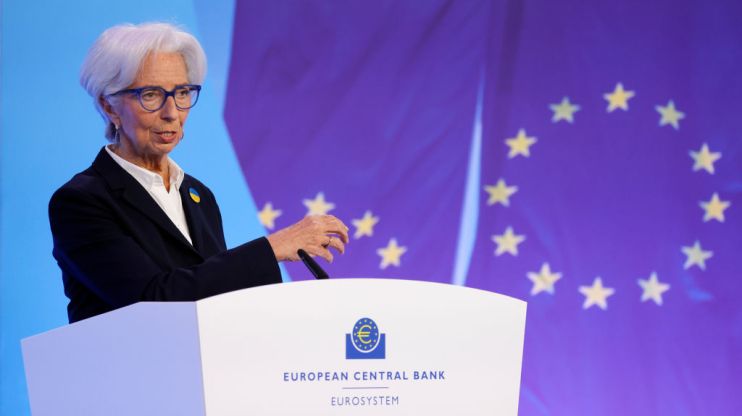ECB’s Lagarde butters up markets for first rate hike in over a decade

The European Central Bank (ECB) will hike interest rates for the first time in over a decade in July, its chief signalled today.
President Christine Lagarde in a blog post on the central bank’s website said the committee of rate setters will take borrowing costs out of negative territory by September.
The ECB has trailed its central banking counterparts in tightening monetary policy despite inflation in the area of countries that use the euro climbing to 7.4 per cent, a record high.
The Bank of England was the first top central bank to move after it lifted rates last December. It has since hiked them at each of its last four meetings, taking them to a 13-year high of one per cent.
The US Federal Reserve raised rates at its last meeting by 50 basis points, something it has not done in over two decades.
Both are anticipated to push through more rate rises this year.
Lagarde said the ECB’s bond buying programme will “end very early in the third quarter,” adding “this would allow us a rate lift-off at our meeting in July”.
That would be the first time the ECB has hoisted rates since 2011. Its deposit rate has been negative since 2014 and is currently minus 0.5 per cent.
“Based on the current outlook, we are likely to be in a position to exit negative interest rates by the end of the third quarter,” she added.
Policy on the Continent has been ultra-accommodative since the financial crisis due to demand in the bloc remaining too depressed, weighing on inflation.
Price rises have historically run below the ECB’s two per cent target. However, they are now accelerating rapidly, largely due to Russia’s invasion of Ukraine sending energy costs soaring.
This inflationary backdrop is likely to trigger a sharp policy shift by Lagarde and co.
Higher borrowing costs will be felt more severely by nations with poor fiscal positions within the 19-strong group of countries the ECB overseas.
Elevated rates will heap pressure on Greece, Italy and Spain, whereas Germany, which tends to run a budget surplus due to its exporting outweighing its imports, has greater capacity to absorb tighter policy.
Yields on German government debt climbed after Lagarde’s comments, driven by investors ditching bonds as they prepare for a higher interest environment.
Yields and prices move in opposite directions.